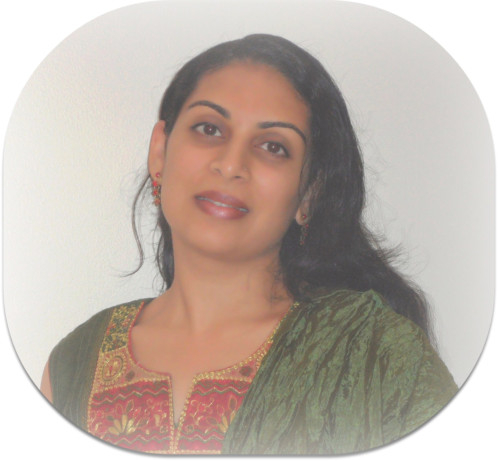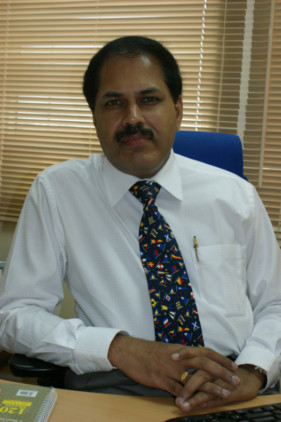
Focus: Guarding the guardians
11:09 Gulf News: Can you trust gatekeepers?
11:10 Annu Pramod: It is the classic case of the fence eating the crop. Everywhere you look globally, you find people who should be implementing the law breaking the law they were entrusted to uphold. In this situation, what will the common man do? Can we trust them? I don’t think there is a concrete answer to that.
11:11 Ramachandran Nair: Yes, we have to trust them to some extent as part of our obligations to society. However, the trust here is not between the individuals, but the arrangement or a system put in place that monitors and controls the overall functioning of an institution. On the part of public, the trust should always be following a mechanism that has proper guidelines and instructions, ensuring all aspects of safety. The individuals have nothing to do in that.
11:13 Fatima Suhail: We cannot trust those protecting and making the laws, blindly. There is no guarantee that the law enforcing parties will always guide us to the right path.
11:13 Gulf News: Does competition in a field ensure that there are always checks and balances in place to ensure accountability of such institutions?
11:14 Annu Pramod: A fact to be appreciated is that competition in every field and the prying eyes of social media has ensured that the scams come to light and people are aware of a lot of malpractices. However, in spite of such competition, in spite of watchdogs in society, a huge institution like BBC [has allegedly] managed to cover up the atrocities of one man for several years. That shows that there are loopholes for everything in the world now.
11:17 Ramachandran Nair: The incident referred to here is of BBC’s cannot be termed as the institution’s stand, though it is regrettable, which ultimately spoils the reputation of BBC.
11:18 Gulf News: Do you think people find it easier to trust social media than conventional media?
11:20 Annu Pramod: To a large extent, the media, including social media, is playing its role of the Fourth Estate very well. There is now a certain sense of responsibility among the media regarding social issues and the media is playing an important part in ensuring it takes an active stand on these issues, regarding exposing issues to the world.
11:20 Ramachandran Nair: Social media shares a mixture of sentiments directly from society, with no censoring, which allows people to exchange their views on any aspect to any extent. This freedom is denied in conventional media, but for the authenticity of information, it is always advisable to follow conventional media sources, which might be more reliable and less confusing.
11:21 Fatima Suhail: An organisation is represented by its people, its employees. The true identity of every organisation is the people who are associated with it. Therefore, with the shocking case of one of the BBC’s presenters coming into the light, there are many questions raised on the credibility and accountability of BBC, as a media organisation.
11:21 Annu Pramod: The trust in social media probably stems from the fact that the common man is involved in propagating the news whereas, in conventional media we are mere hearers or readers. Our view is seldom heard.
11:21 Ramachandran Nair: Social media is easy and convenient to access and gives people all that flexibility and freedom. The trust is basically depending upon the issues that are being discussed and/or debated, and here, to me, the responsibility rests with the user.
11:21 Salim Mohammad: Yes, you are right. People can and do believe social media like Facebook and Twitter more than the TV giants. Moreover, nowadays what we can see is that many news channels now use social media websites to update their own news channels.
11:24 Fatima Suhail: I think putting trust in social media or the traditional media is solely the choice of an individual. Nothing on the social media is absolutely accurate, nor can the conventional media be trusted for everything they state.
11:24 Annu Pramod: Both media have their pros and cons. Social media is accessible for all and is a very good medium where we can make our voice heard. However, it tends to get very personal and subjective. Conventional media on the other hand would be objective to a large extent although company policies on certain issues could affect the news reported.
11:25 Salim Mohammad: Well that might be difficult to say because both digital media and social media play the same role – to update society. At times, we see that news is sensationalised for better ratings. But we rarely see that on social media, as they would not benefit anything from it. So, I think we can trust social media websites and platforms more.
11:26 Fatima Suhail: I still strongly trust conventional media because the news comes from reliable sources, unlike on social media where most of the news is either based on rumours or hearsay stories and lack reality.
11:27 Aisha Naseem: I choose to trust social media, at times, over conventional media. One can’t really pick and choose what source of information they want to trust and believe. Anything sensational always gets your attention. The fact whether the source is reliable takes a back seat.
11:28 Fatima Suhail: The fact is that social media, as well as, the conventional media sources can manipulate the news and highlight only the things they wish people to see and believe in. It is up to us to accept the news as it is or try and find out the hidden truth.
— Compiled by Huda Tabrez/Community Web Editor
















